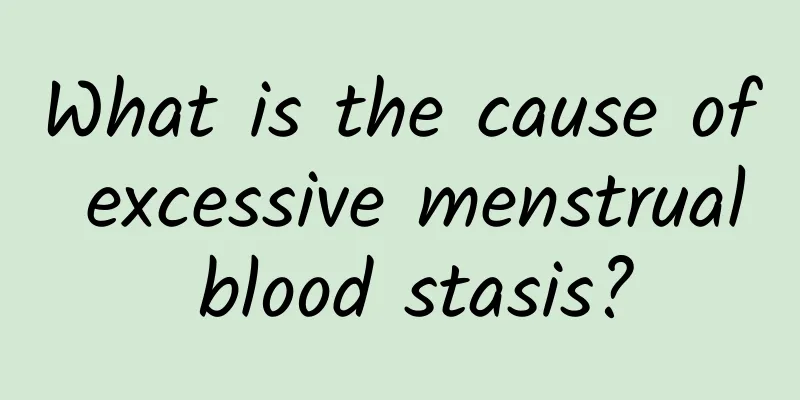Reasons for chest tightness and shortness of breath when sleeping

|
The main reason why we experience chest tightness and shortness of breath when we sleep is because the air circulation in our room is relatively poor. It may also be caused by heart disease and respiratory blockage in our lives. Therefore, we recommend that patients should observe whether the windows are closed too tightly when they feel chest tightness and shortness of breath when they sleep. If not, they may need to check their body organs. There are many triggering factors, depending on your physical condition. Chest tightness is a subjective feeling, that is, difficulty breathing or lack of air. Those with mild symptoms will feel nothing serious, but those with severe symptoms will feel uncomfortable, as if a stone is pressing on their chest, and even have difficulty breathing. It may be a functional manifestation of the body's organs, or it may be one of the earliest symptoms of disease in the human body. The causes of chest tightness in people of different ages are different, the treatments are different, and the consequences are also different. 1. Functional chest tightness (i.e. chest tightness without organic disease): Staying in a room with closed doors and windows and poor air circulation for a long time, or encountering some unpleasant things, or even having quarrels or disputes with others, or being in a climate with low air pressure, often causes feelings of chest tightness and fatigue. After a short rest, opening windows for ventilation or going outside to breathe fresh air, relaxing your mind and regulating your emotions, you will soon return to normal. This type of chest tightness can be said to be functional chest tightness, and there is no need to worry or seek treatment. 2. Pathological chest tightness (i.e. chest tightness caused by organic lesions): Chest tightness can not only be physiological, but can also be caused by diseases in certain organs in the body, i.e. pathological chest tightness. like: 1. Respiratory obstruction: tumors in the trachea and bronchus, tracheal stenosis, and external pressure on the trachea (thyroid enlargement, tumors in the mediastinum); 2. Lung diseases: emphysema, bronchitis, asthma, atelectasis, pulmonary infarction, pneumothorax; 3. Heart disease: certain congenital heart diseases, rheumatic heart valve disease, coronary heart disease, heart tumors; 4. Diaphragmatic diseases: diaphragmatic swelling and diaphragmatic paralysis; 5. Disturbance of fluid metabolism and acid-base balance, etc. In short, chest tightness must be taken seriously to avoid delaying necessary treatment. You should go to the hospital for chest X-ray, electrocardiogram, echocardiogram, blood biochemistry and pulmonary function tests so that the clinician can further confirm the diagnosis. The above introduces to us in detail the reasons for chest tightness and shortness of breath when sleeping. I hope you can take good preventive measures in your life to reduce the occurrence of diseases. For the situation of chest tightness and shortness of breath when sleeping, we can understand what causes it in our daily life, and then treat it according to the cause of the disease. |
<<: Introduction to Idiopathic Pulmonary Fibrosis
>>: The dangers of pituitary dysplasia
Recommend
What happens if I drink water before taking a glucose tolerance test?
For pregnant mothers, it is very important to do ...
How long does it take to fart after a caesarean section
Although cesarean section reduces the pain of wom...
Three common causes of acute bronchitis
There are many patients with acute bronchitis aro...
How to treat knee periostitis
Knee periostitis is actually what we call knee sy...
What are some folk remedies for eczema?
There are many herbs around us that can be used t...
The first time was painful but no blood was seen
In today's life, girls also do a lot of stren...
What should I do if my skin feels like it’s burned by Sanfutie?
Everyone knows what burns look like. After all, a...
Foods for cleansing the intestines and detoxifying, choose these four most reliable
Generally speaking, people will accumulate certai...
If you break your nose, you can apply green ointment
The nose is a very sensitive area. Many people of...
Pros and cons of tonsillectomy in children
Many children often suffer from tonsillitis since...
How to treat marginal gingiva effectively
The health of teeth is related to the health of t...
What comb is good for hair loss?
When you are experiencing hair loss, you can use ...
How to eat Perilla seeds
As the name suggests, perilla seed is the fruit o...
What are the moving masses inside the eye bags?
We all know that going to bed early and getting u...
Among the clinical manifestations of pheochromocytoma, the first one is the most obvious!
Pheochromocytoma is a common disease in urology a...









